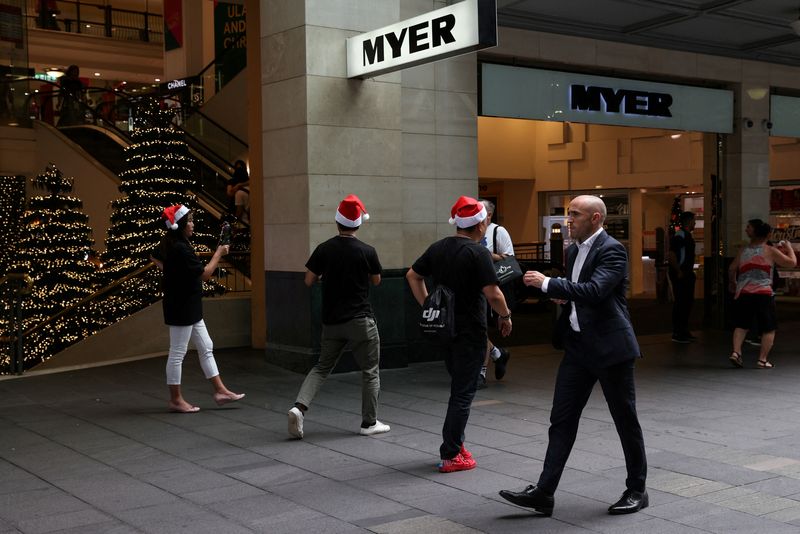SYDNEY (Reuters) - Australia's household spending fell in December after a rise the previous month, as consumers pulled back spending on household goods, recreation and food, data from the Commonwealth Bank of Australia (OTC:CMWAY) showed on Monday.
The CommBank Household Spending Insights (HSI) index fell 3.9% to 137.0 in the Christmas month from November when it rose 1.6% thanks to Black Friday sales. The annual rate of increase remained subdued, up just 3.1%.
The data confirmed consumers brought forward spending to take advantage of the Black Friday and Cyber Monday sales in November, upsetting a longstanding tradition of big spending on Boxing Day, a public holiday the day after Christmas.
The underlying pulse in spending remained weak after the Reserve Bank of Australia (RBA) raised interest rates by 425 basis points since May 2022 to a 12-year high of 4.35% to slow inflation.
Spending on household goods, mostly furniture and household appliances, fell 16% in December after a rise of 7% the previous month. Consumers, however, spent more on insurance, transport and health in December.
"With the pace of economic growth in Australia clearly moderating and the November RBA rate hike yet to fully impact on the consumer, a further slowdown in the pace of household spending is expected through the first half of 2024," said Belinda Allen, a senior economist at CBA.

"This together with moderating inflation supports our view that monetary policy tightening cycle has come to an end that the RBA can join the expected global shift to lower interest rates in September this year."
The HSI index is based on 12 spending categories and uses payment data from about 7 million CBA customers, comprising roughly 30% of Australian consumer transactions.